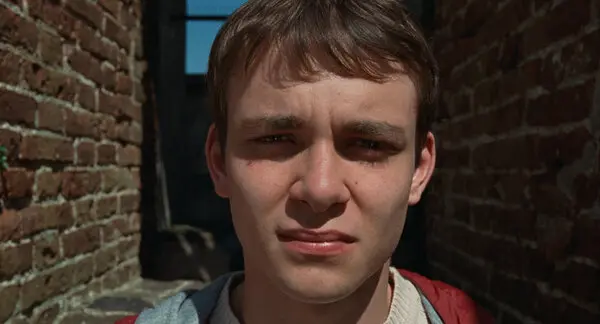
Oh, to be young, hot, and Italian! At first glance, it might seem as if Diciannove (Nineteen) is a film about a narcissistic young man who never learns any lessons. And it is that, to an extent. First time filmmaker Giovanni Tortorici wears both his heart on his sleeve, and the hearts of the amazing Italian filmmakers who clearly inspired his debut feature. There’s the classical appreciation you might find from Paolo Sorrentino; the sexuality of a Luca Guadagnino picture (he also produced the film); and even the experimental youthful jubilation of Xavier Dolan, not an Italian filmmaker but one whose work is clearly etched in the architecture of this film. We expect our Italian cinema to be passionate and energetic, but Diciannove takes those heightened emotions and puts them in the hands of a character entirely uninterested in them.

We’ve all known someone like Leonardo (Manfredi Marini). He’s attractive, and realizes it. He’s smart, and knows it. He’s confident in that way only someone who grew up privileged can be. And, of course, he thinks he knows everything. Yet somehow – despite all that – he’s miserable. He cannot seem to connect with anyone outside of his own family, spends his time alone in his room harshly judging the greatest minds of Italian literature, and has made it his mission to alienate everyone around him. In short: he’s a prick. But he’s a relatable prick because, as the title of the film suggests – he’s only nineteen. In truth, he knows nothing he hasn’t read in a book, and the lack of curiosity that might take him away from his fanatical moralism is a self-created prison in which he finds himself hopelessly trapped.
As “Leonardo”, newcomer Manfredi Marini is a real revelation. Everything about this kid rings true, from the way he dresses and keeps his room to the way holds himself when he’s around other people. Marini clearly understands the complicated emotions that are constantly spinning inside the head of a 19-year-old. You’re in that gray area between young adulthood and adulthood, craving life experiences, and excited to be on your own. And, then, when you’ve finally broken free, you realize the real world is a frightening place. Here, that surfaces in the way Leonardo is constantly worried about how his food or drink is prepared, when he’s not doom-scrolling late into the evening or obsessively purchasing rare books. Leonardo is lost, homesick (whether he realizes it or not), and heading towards something bad, potentially.

What Tortorici does is slowly build a character who is both lovable and endearing, but highly unsympathetic and borderline unbearable at times. Yes, Leonardo is a narcissist, but he’s also still a sponge who could easily change course with guidance. Attempted guidance comes towards the end of the picture when an older friend of his grandmother invites him over for dinner and some literary conversation. Almost immediately, the old man recognizes that Leonardo is fanatical in his beliefs, which he finds to be a little lazy. He expresses this to Leonardo in a very direct way, even comparing his trajectory to that of an ISIS member. It’s an assault on everything Leonardo holds dear and it cuts him to the quick. Diciannove expertly makes the case that there is a thin line between fanaticism and fascism, and Leonardo is clearly toeing that line for much of this film. We don’t really find out how our protagonist ends up, but we’re left with a little more hope for the kid than we might have had earlier in the film.
I remember being nineteen. I was torn in many of the ways Leonardo finds himself torn. You feel all of this intense pressure to become who you’re supposed to become, but expect it all to happen without the life experience to back it up. Maturation doesn’t work that way. Some of the visuals might be jarring and a bit all over the place, but Tortorici is finding his cinematic voice just the same way his lead character is finding his literary voice. Thanks to a jaw-dropping debut performance from Marini, some gorgeous Italian locales, and a narrative that doesn’t really evolve but assert, Diciannove is one of the most moving and consequential coming-of-age pictures I’ve seen come out of Italy in a long time. And both Tortorici and Marini are ones to watch. The film opens with Leonardo’s nosebleed and closes with a dissection of his heart. Where he goes next is up to him.
RATING: ****/***** (now playing in limited release via Oscilloscope)




